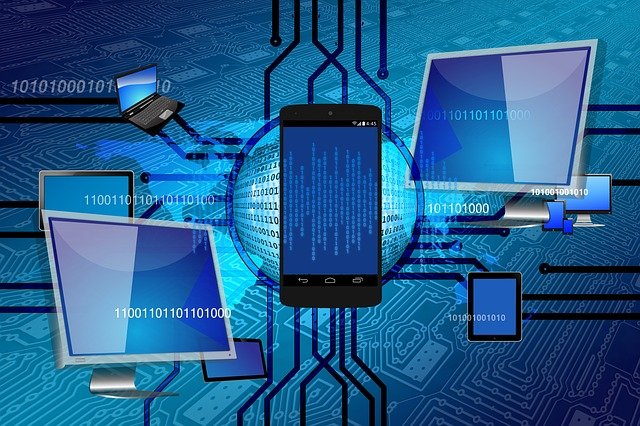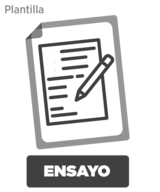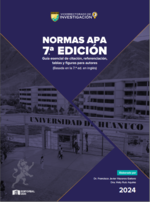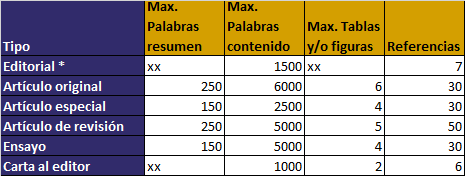Educação Artificial
DOI:
https://doi.org/10.37711/desafios.2022.13.1.370Palavras-chave:
inteligência artificial, análise da aprendizagem, tutor virtual inteligente, e-learning, educação virtualResumo
Este trabalho trata do uso de um novo termo chamado "educação artificial", onde ainda não é mencionado em escritos ou obras, talvez aparecendo apenas como a aplicação da inteligência artificial ao campo da educação. Seu objetivo é dar uma compreensão do que provavelmente será usado no futuro próximo: educação artificial, que nada mais é do que a aplicação e obtenção de muitos benefícios da inteligência artificial na educação; a idéia de que uma máquina pode criar currículos atualizados baseados em demandas sociais, sociedades do trabalho e do conhecimento, também para considerar tutores inteligentes para orientar o aprendizado do estudante, criando caminhos de aprendizado que lhes permitam aprender com seus erros e orientando-os para o sucesso de cada atividade. Também discute alguns casos práticos no mundo desta tecnologia e como o trabalho dos professores está sendo realizado. Ao mesmo tempo, é feita uma projeção de como seria o cenário educacional se considerássemos a inteligência artificial avançada, que substituiria definitivamente o trabalho dos professores e da pessoa humana. Falamos também de centros educacionais, locais em casa, assistidos por uma inteligência artificial interligada com outras e utilizando ferramentas digitais, bem como cenários virtuais assistidos por realidade virtual e hardware altamente sofisticado para o processamento real de imagens e dados atualizados e purgados. Estes sistemas seriam alimentados por comunidades de inteligências artificiais em relação a uma disciplina ou assunto, e assim por diante, a continuidade e projeção do que poderia ser alcançado é inimaginável; ainda mais agora com a criação do meta-verso, a evolução da realidade virtual, e o surgimento de dispositivos imersivos.
Downloads
Referências
Aulaplaneta. (2019). Inteligencia Artificial y docencia: ¿Una obligatoria convivencia? https://www.aulaplaneta.com/2019/05/13/recursos-tic/inteligencia-artificial-y-docencia-una-obligatoria-convivencia/
Ayala, R. J., Laurente, C. M., Escuza, C. D., Núñez, L. A. y Díaz Dumont, J. R. (2020). Mundos virtuales y el aprendizaje inmersivo en educación superior. Propósitos y Representaciones, 8(1), e430. https://doi.org/10.20511/pyr2020.v8n1.430
Bosio, J. (2019, 7 de febrero). 10 retos para la gestión de tecnologías en la educación superior. Innovación Educativa.https://innovacioneducativa.upc.edu.pe/tag/inteligencia-artificial/page/2/
Canton, D., Arellano, J., Hernández, M. y Nieva, O. (2017). Uso didáctico de la realidad virtual inmersiva con interacción natural de usuario enfocada a la inspección de aerogeneradores. Apertura, 9(2), 8–23. https://doi.org/https://doi.org/10.18381
Caparrós, G. y Sendra, F. (2021). Percepciones de estudiantes de Medicina sobre el impacto de la inteligencia artificial en radiología. Radiología. https://doi.org/10.1016/j.rx.2021.03.006
Copyleaks. (2020). Calificación automatizada basada en IA. https://copyleaks.com/es/education/ai-grading
Cuervo, C. A. Z. (2021). Efectos de la inteligencia artificial en las estrategias de marketing: Revisión de literatura. ADResearch ESIC International Journal of Communication Research, 24(24), 26–41. https://doi.org/10.7263/adresic-024-02
Domínguez, D., Reich, J. y Ruipérez-Valiente, J. A. (2020). Analítica del aprendizaje y educación basada en datos: Un campo en expansión. RIED. Revista Iberoamericana de Educación a Distancia, 23(2), 33. https://doi.org/10.5944/ried.23.2.27105
Expansión. (2022, 17 de febrero). ¿Cómo llegamos hasta el Metaverso? https://expansion.mx/tecnologia/2022/02/17/como-llegamos-hasta-el-metaverso
Fernández, C. (2000). Digital education. Enrahonar. Quaderns de Filosofia, 31, 161. https://doi.org/10.5565/rev/enrahonar.568
Forero, T. (2020, 19 de marzo). Conoce los principales impactos de la inteligencia artificial (IA) en la educación y sus posibilidades futuras. https://rockcontent.com/es/blog/inteligencia-artificial-en-la-educacion/
Freire, P. (1971). La educación como práctica de la libertad. Tierra Nueva.
García, L. (1999). Historia de la Educación a distancia. Revista Iberoamericana de Educación a Distancia, 2(1), 11-40. DOI:10.5944/ried.2.1.2084
García, L. (2019). Necesidad de una educación digital en un mundo digital. RIED. Revista Iberoamericana de Educación a Distancia, 22(2), 9. https://doi.org/10.5944/ried.22.2.23911
Goodnight, J. (2021). Inteligencia Artificial Qué es IA y Por Qué Importa. https://www.sas.com/es_pe/insights/analytics/what-is-artificial-intelligence.html
Hernández, E. (2020). ¿Cómo aplicar Inteligencia Artificial en educación? https://observatorio.tec.mx/edu-bits-blog/inteligencia-artificial-en-educacion
Hernández, J. y Pascuas, Y. (2015). Los Sistemas tutores inteligentes y su aplicabilidad en la educación. Revista Horizontes Pedagógicos, 17(2), 104–116. https://horizontespedagogicos.ibero.edu.co/article/view/17209
Huertas, M. (2021, 27 de abril). ¿Qué es y porqué es necesaria la epistemología feminista de la inteligen-cia artificial? https://blogs.uoc.edu/informatica/que-es-y-porque-es-necesaria-la-epistemologia-feminista-de-la-inteligencia-artificial/
Kamii, C. y Rheta, D. (1995). La teoría de Piaget y la educación preescolar. Visor.
Lee, K. F. (2020). Cómo la inteligencia artificial ayudará a los profesores. https://aprendemosjuntos.elpais.com/especial/como-la-inteligencia-artificial-ayudara-a-los-profesores-kai-fu-lee/
Lenovo. (2021). Transporta a los estudiantes a mundos completamente nuevos. https://www.lenovo.com/mx/es/smarter/lenovo-virtual-classroom-education/
López-Morocho, L. (2020). Educación remota de emergencia, virtualidad y desigualdades: pedagogía en tiempos de pandemia. 593 Digital Publisher CEIT, 5–2(5), 98–107. https://doi.org/10.33386/593dp.2020.5-2.347
Metz, C. (2021, 20 de julio). Asombro. ¿Puede la inteligencia artificial calificar tu próximo examen? https://www.clarin.com/new-york-times-international-weekly/-puede-inteligencia-artificial-calificar-proximo-examen-_0_cgl51Y-NV.html
Ocaña-Fernández, Y., Valenzuela-Fernández, L. A. y Garro-Aburto, L. L. (2019). Inteligencia artificial y sus implicaciones en la educación superior. Propósitos y Representaciones, 7(2), 536-568. https://dx.doi.org/10.20511/pyr2019.v7n2.274
Oculus. (2021). Todo en uno y uno para todo. https://www.oculus.com/quest-2/
REDEM. (2019, 15 de mayo). Inteligencia artificial: la clave para vigilar a los estudiantes en China. https://www.redem.org/inteligencia-artificial-la-clave-para-vigilar-a-los-estudiantes-en-china/
Reinoso, R. (2020, 20 de febrero). Las tecnologías inmersivas aplicadas a la educación y la formación. https://eldiariodelaeducacion.com/espiral/2020/02/20/las-tecnologias-inmersivas-aplicadas-a-la-educacion-y-la-formacion/
Ruz-Fuenzalida, C. (2021). Educación virtual y enseñanza remota de emergencia en el contexto de la educación superior técnico-profesional: posibilidades y barreras. Revista Saberes Educativos, 6, 128. https://doi.org/10.5354/2452-5014.2021.60713
Sabulsky, G. (2019). Analíticas de Aprendizaje para mejorar el aprendizaje y la comunicación a través de entornos virtuales. Revista Iberoamericana de Educación, 80(1), 13–30. https://doi.org/10.35362/rie8013340
Senge, P. (1992). La quinta disciplina. Granica.
Sketchup. (2021). The joy of drawing by hand. The ease of super-smart 3D modeling software. https://3dwarehouse.sketchup.com/
UNESCO. (2019). La educación transforma vidas. https://es.unesco.org/themes/education
UNESCO. (2021). La Inteligencia Artificial en la Educación. https://es.unesco.org/themes/tic-educacion/inteligencia-artificial
Vidal, M. J., Madruga, A. y Valdés, D. (2019). Inteligencia artificial en la docencia médica. Scielo, 33(3), 9–10. http://scielo.sld.cu/scielo.php?script=sci_arttex-t&pid=S0864-21412019000300014

Downloads
Publicado
Como Citar
Edição
Seção
Licença
Copyright (c) 2022 Edgardo Cristiam Iván López De La Cruz, Sheyla Nicida Arévalo Vidal

Este trabalho está licenciado sob uma licença Creative Commons Attribution 4.0 International License.
a. Los autores conservan los derechos de propiedad intelectual (copyright) de las obras publicadas, cediendole a la revista el derecho de primera publicación.
b. Los autores retienen sus derechos de marca y patente, y también sobre cualquier proceso o procedimiento descrito en el artículo.
c. Los autores retienen el derecho de compartir, copiar, distribuir, ejecutar y comunicar públicamente el artículo publicado en la RD (por ejemplo, colocarlo en un repositorio institucional o publicarlo en un libro), con un reconocimiento de su publicación inicial en la RD.
d. Los autores retienen el derecho a hacer una posterior publicación de su trabajo, de utilizar el artículo o cualquier parte de aquel (por ejemplo: una compilación de sus trabajos, notas para conferencias, tesis, o para un libro), siempre que indiquen la fuente de publicación (autores del trabajo, revista, volumen, número y fecha).























